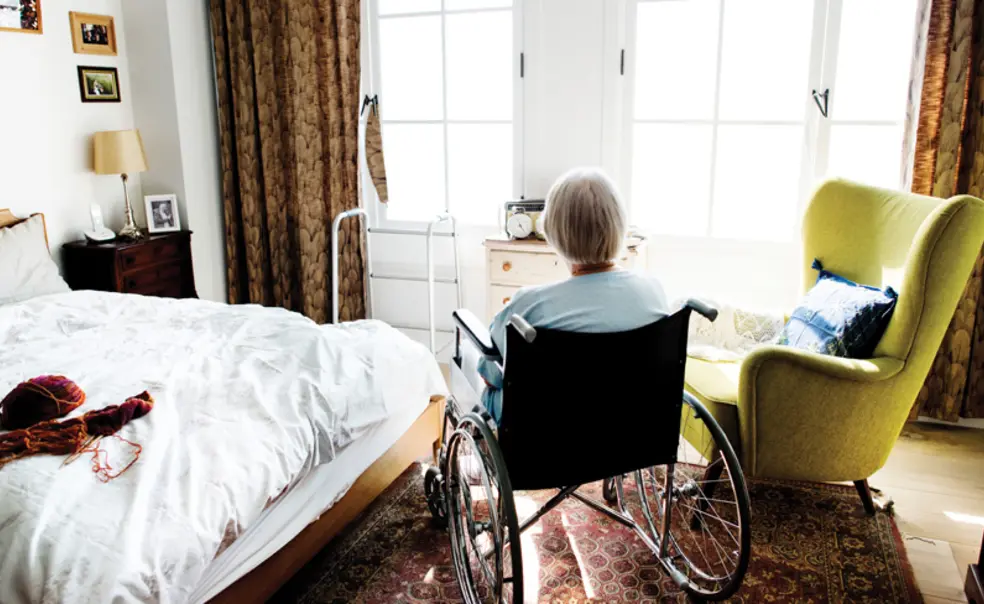SPIA’s Heather Howard Found Inequalities in Medicaid Recovery
Howard’s research into the policy showed that Black and Hispanic families missed opportunities to build intergenerational wealth
As a health-care policy expert, Heather Howard was excited to dive into the impacts of Medicaid estate recovery once it was clear some states were considering reforming the law. Created in 1993, this federal law gave states the right to recoup some of the costs of Medicaid benefits used for long-term care, beginning at age 55, from an individual’s assets once he or she dies. Nursing home costs, for example, were on average more than $116,000 annually in 2023, according to the Kaiser Family Foundation.
Howard, a professor in Princeton’s School of Public and International Affairs and co-director of the Global Health Program, worked with Rutgers assistant professor Amanda Spishak-Thomas and Emma Sandoe, director of Oregon’s Medicaid Division, to research the benefits and drawbacks of the program.

“Our hypothesis was that it has created deep inequities because we know people of color are overrepresented in the Medicaid program and have historic wealth gaps, and so we were sort of testing this,” says Howard. “We also knew there were some policy proposals in Congress and at the state level to revisit it now that we’re 30-plus years in and there’s been too little research done on the impact.”
To test their ideas, the trio began their research by comparing the estate recovery policies of Georgia, North Carolina, and Massachusetts and assessing how the policies changed over time. They then analyzed public data to figure out how much states were paid back over the years and by whom.
Their instincts were correct: While wealthier families are often able to circumvent medical debts for their deceased relatives through estate planning, they found low-income families faced greater burdens. This has resulted in Black and Hispanic families losing out on opportunities to build intergenerational wealth from inherited properties.
They also found states ultimately recovered a miniscule amount. “It actually is not cost-effective,” says Howard, due to administrative costs, including investigating after a person dies and placing a lien on their home. While the intention of Medicaid estate recovery was to ensure fairness, it hasn’t worked, she adds. Their findings were published in August in the Journal of Health Politics, Policy and Law in a paper titled “Lot of Pain for Little Gain: Three Decades of Medicaid Estate Recovery.”
“We’re hoping [our findings] will spur more research and give more oxygen to these reform efforts,” says Howard. She adds this is a perfect moment for states to consider reforming their Medicaid estate recovery policies to address these inequities as health-care costs are rising and the future of the Affordable Care Act under the Trump administration is up in the air.
The U.S. population is also rapidly aging. Due to increasing life expectancy and declining birth rates, 82 million Americans are projected to be 65 and older by 2050, accounting for 23% of the population. This means more families may need to turn to Medicaid for support services as they age.
Howard adds, “I hope this sheds a light on the failure of our policymakers to address long-term care needs.”












1 Response
Tiffany Hensley
2 Months AgoFamily Experience with Medicaid Recovery
We are dealing with this now. Our family home is a small 2-bedroom house in East Tennessee; it was built by our great-great-grandmother in the ’60s with the money she made selling Avon. We are low income and the only heirs to the home. My husband has developed severe anxiety and depression due to the thought of losing this house that has been in the family for seven generations. We are not a minority, but our story has been picked up by a reporter and is going to be featured in a national publication. We have no savings, can’t keep up with our current mortgage, and have a minor child and that home we care so deeply about seemed like our only glimmer of hope, and now because of estate recovery we are heartbroken and deeply hurt. We can’t get any answers from Tenncare on the process of what will happen. The law needs to be repealed. It hurts this nation’s most vulnerable. We had no choice but to get our grandfather Medicaid because we could not subject our child to his dementia. It wasn’t safe for anyone. We were never informed of MERP beforehand, and we could definitely not afford the $10,000 a month nursing home bill. What kills me most is we pay taxes our whole lives — we pay into the very system that steals from us, even in death.